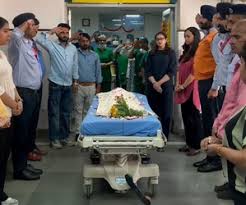A groundbreaking study conducted by researchers from Mass General Brigham’s Brigham and Women’s Hospital and Massachusetts General Hospital sheds light on the pervasive and often overlooked impact of nighttime gunshots on American cities, particularly on sleep quality and community health. The findings, published in the Journal of General Internal Medicine, underscore the disproportionate burden of sleep disruption borne by low-income neighborhoods.
Lead author Rebecca Robbins, MMSc, PhD, MS, emphasized the significance of the study’s findings, stating, “A nighttime gunshot likely disrupts the sleep of nearby community residents due to the sheer sound of the shot, which is then followed by a cacophony of sirens from police vehicles and ambulances.” She stressed the importance of understanding this underexplored social determinant of sleep and population health.
The research, which analyzed publicly available data on gunshots in six major U.S. cities from 2015 to 2021, revealed that gunshots are twice as likely to occur at night. Furthermore, the study highlighted a concerning trend: as median household income increases, rates of nighttime gunshots decrease. This correlation underscores the heightened impact of gun violence on low-income communities, where residents experience more frequent sleep disruptions.
To quantify the potential effect of nighttime gunshots, the researchers estimated the number of individuals within earshot and the number of nights of potentially disrupted sleep, defining this metric as “person nights.” Alarmingly, the study estimated that approximately 12.5 million person nights across the six cities could be impacted annually, indicating a widespread and significant public health concern.
Dr. Chana A. Sacks, MD, MPH, co-last author of the study, emphasized the broader community impact of gun violence beyond casualties, stating, “The traumatic ripple effects from gunshots can extend across families and entire communities. Our work helps to broaden how we think about who is impacted by these events.”
The study’s insights are expected to inform community-based interventions aimed at addressing sleep disruptions caused by nighttime gunshots. While the research team did not directly measure sleep disturbances, their findings lay the groundwork for future investigations into sleep interventions and public health policies to mitigate the adverse effects of gun violence.
Acknowledging the collaborative effort across institutions, the authors credit their multidisciplinary approach for advancing understanding of the impacts of gun violence on communities and contributing to the national conversation on public health and safety.












